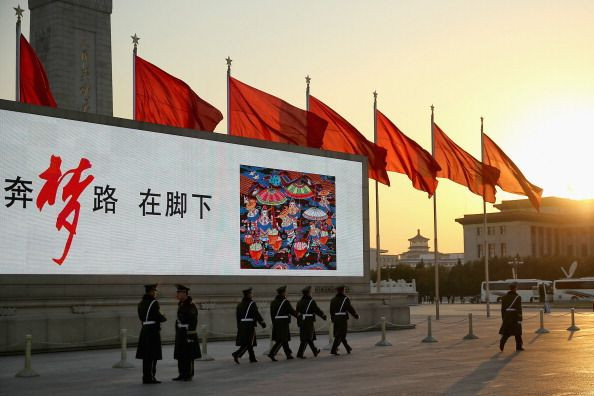China's Third Plenum: Markets Will Play 'Decisive' Role, Formation Of Economic Reform-Focused Leading Group

China’s top leaders concluded a critical four-day meeting Tuesday about the future of the world's second-largest economy by affirming the government's commitment to letting markets play a "decisive" role in resource allocation, but some analysts said results of the meeting were disappointing.
A communiqué from the Third Plenum of the 18th CPC Central Committee stated the Chinese government’s commitment to allow markets a decisive role in resource allocation and also said Beijing would form two elite groups, one tasked with “deepening economic reform” and one to strengthen state security.
The meeting was expected to set the tone for the nation’s political and economic reforms for the coming decade, ended Tuesday. While the meeting was never aimed to deliver a detailed policy package, the communiqué released from the meeting nonetheless proved disappointing against expectations.
“The purpose of this meeting was to achieve backing for a clear and comprehensive blueprint for reform, what President Xi had referred to as a ‘master plan’,” a research note from Capital Economics on the communiqué said. “The Plenum doesn’t seem to have delivered that.”
Detailed policies can be expected in the coming weeks, but the communiqué stated that the party is committed to China’s development, and pledges to grant markets a “decisive” role in resource allocation. There will also be fiscal reforms and plans to unify rural and urban land markets.
Unexpectedly, the key session announced the formation of two leading small groups, which points to the focus for Chinese leaders going forward. One team is set up for “comprehensively deepening reform.” Since an overarching view of how various outlined reforms will fit together, this central group could prove key in coordinating what may otherwise become piecemeal struggles.
“China has top-level groups for its most pressing issues,” Michal Meidan, a China expert for the Eurasia Group, an economic and political risk consultancy, wrote in an email to International Business Times. “Creating one for reform could suggest a better follow-through on new policy measures and implementation.”
The plenum also formed a state security committee that would aim to “complete the nation’s security structures and strategy and to ensure the security of the country,” Xinhua, China’s state news agency, reported on Tuesday.
“Depending on who heads the state security council, the group could boost the anti-corruption drive or political tightening,” Meidan said.
The party is also reportedly planning to ease its one-child policy shortly, according to Caixin, a Chinese financial news outlet. Population control measures were one of the key issues discussed at the Third Plenum. Currently, only couples who are both an only child are allowed to have a second baby themselves, but any family that had one parent who was an only child would be allowed to have two babies going forward.
© Copyright IBTimes 2025. All rights reserved.





















